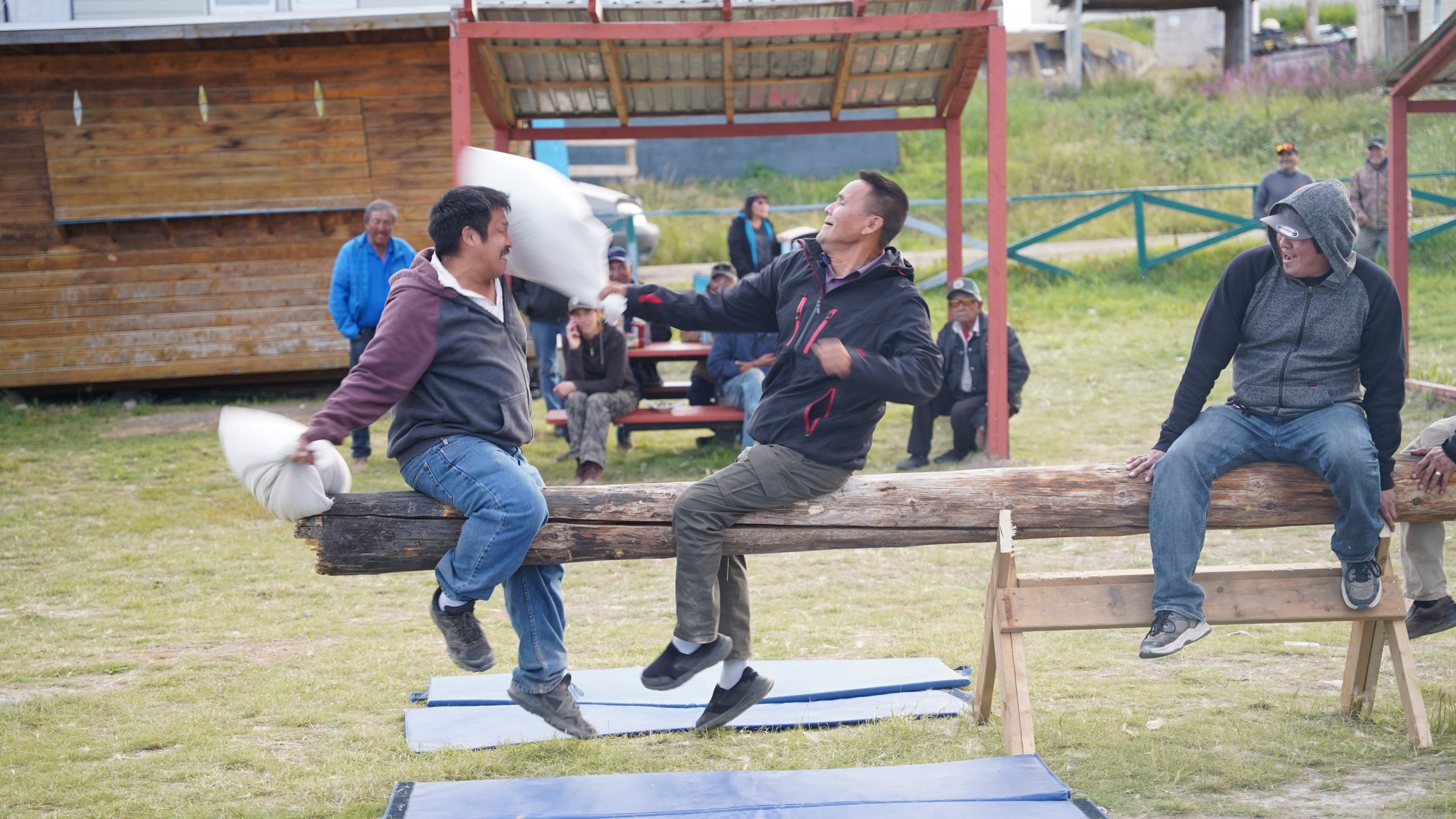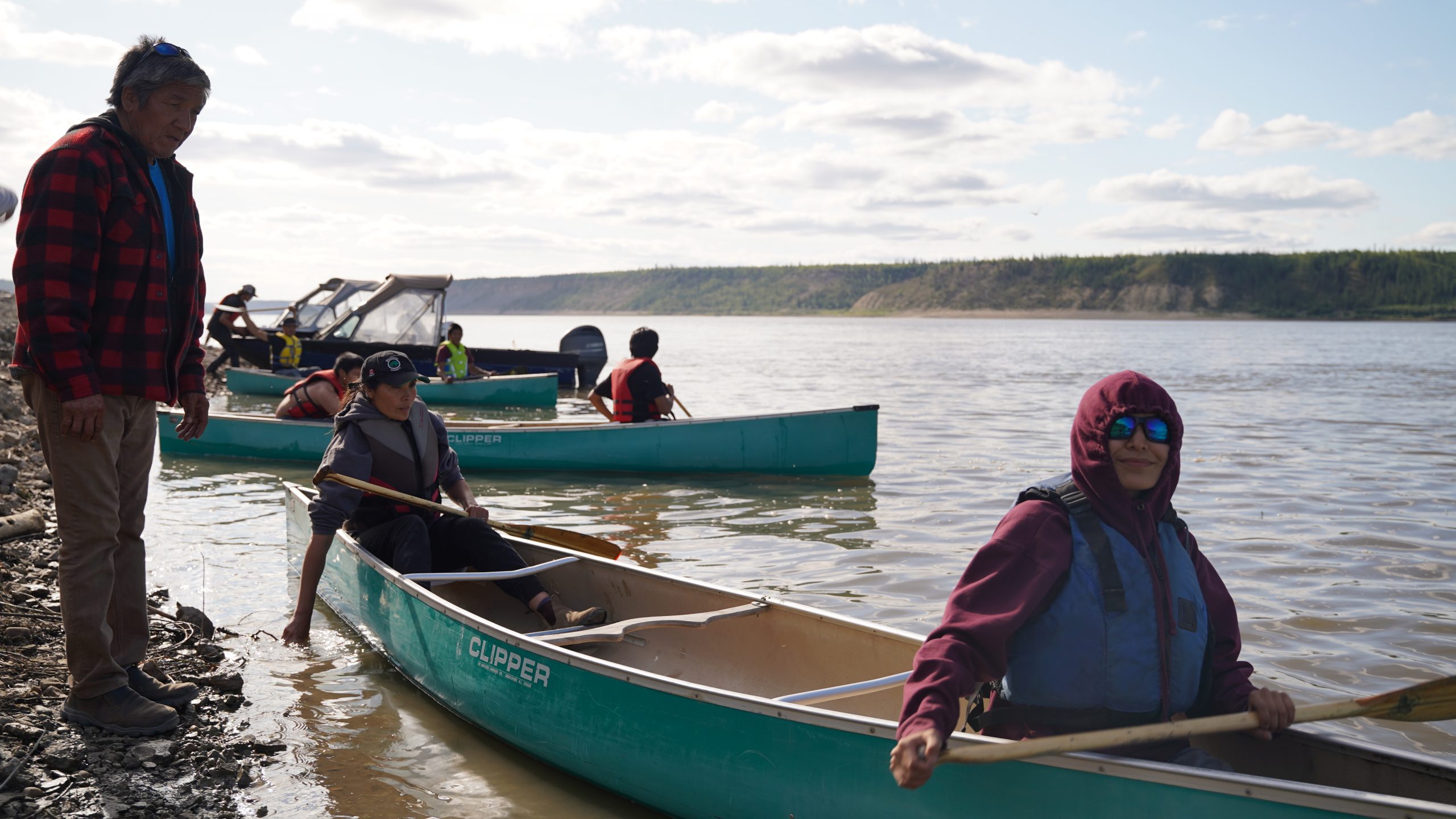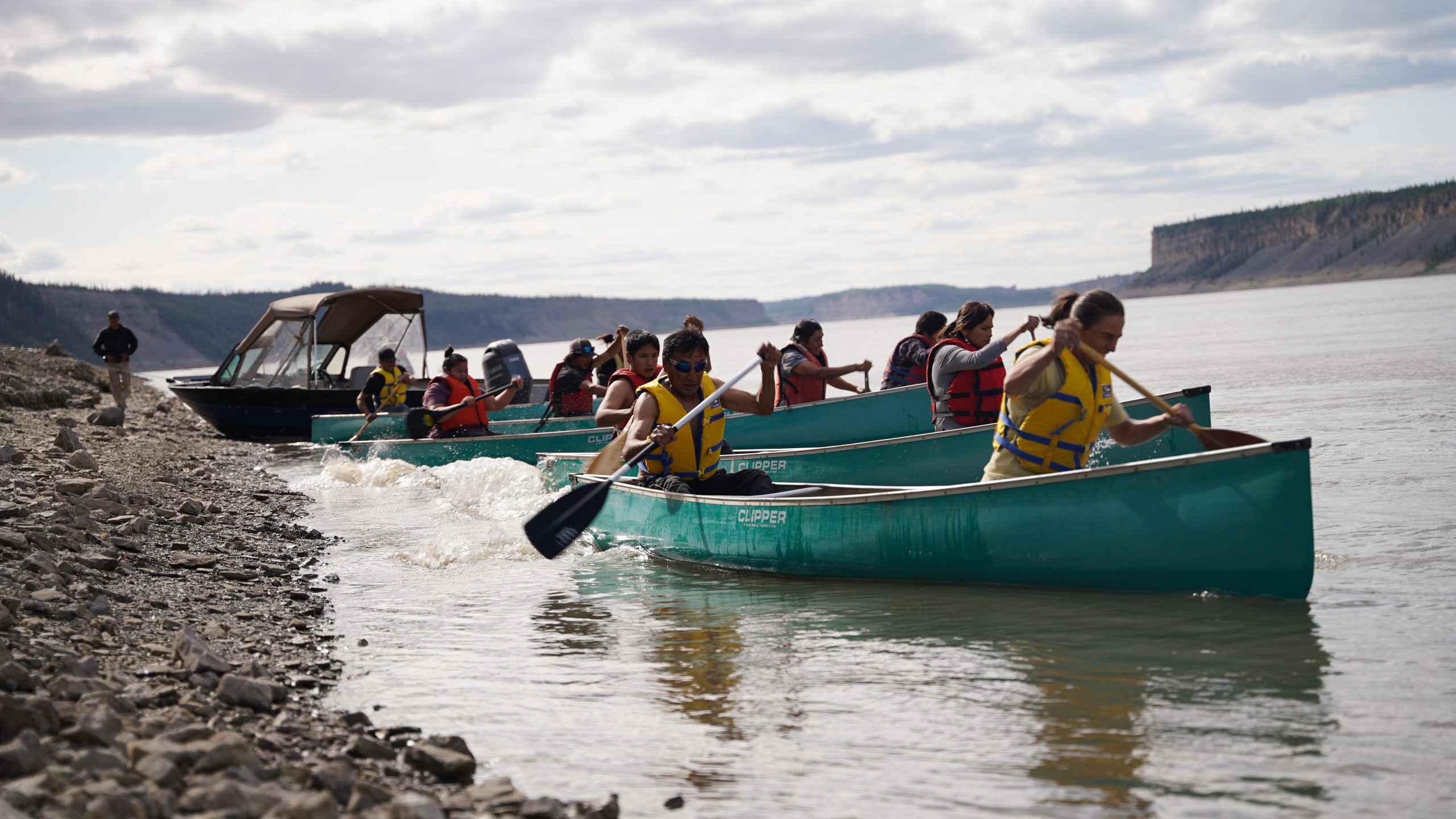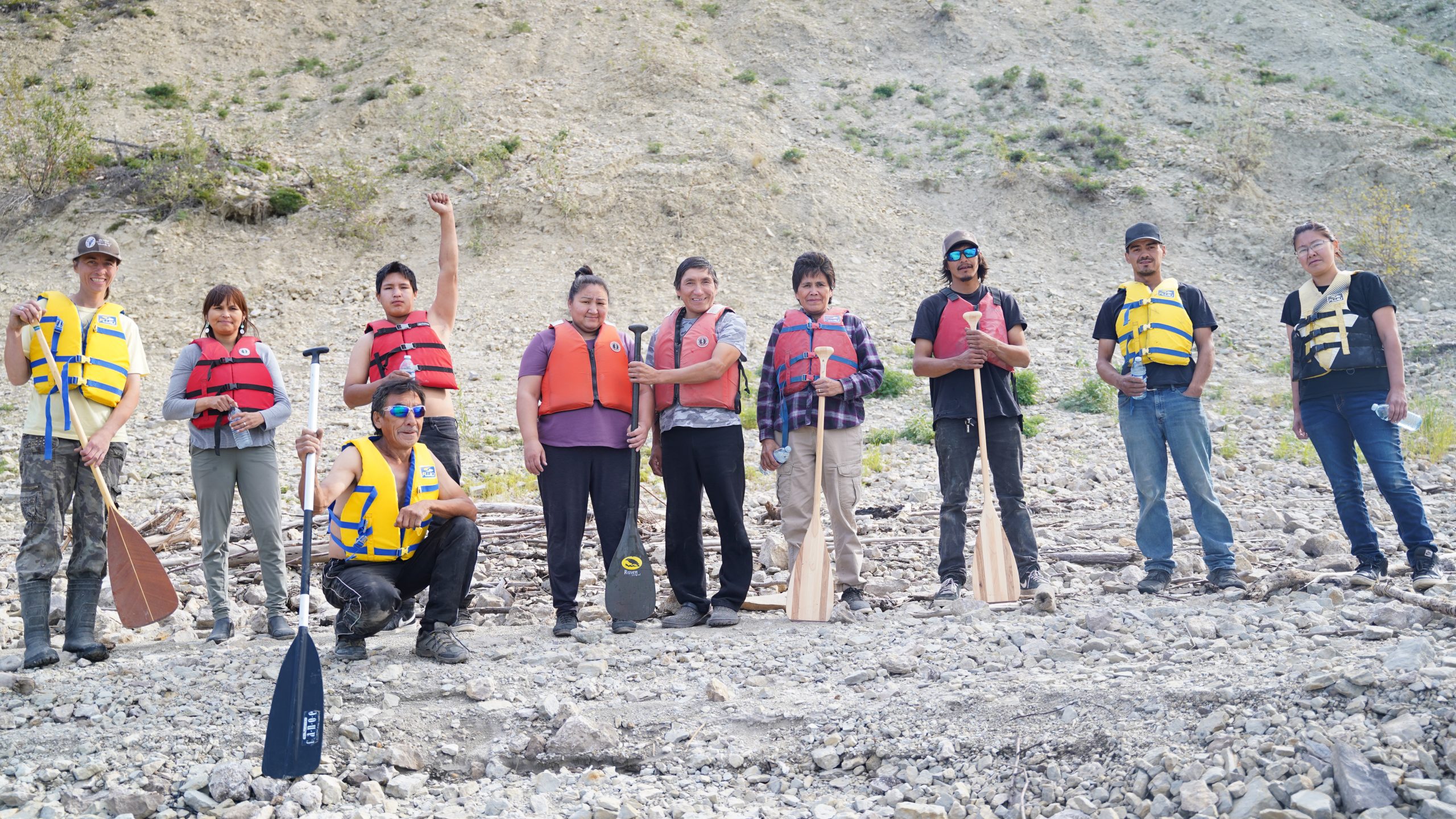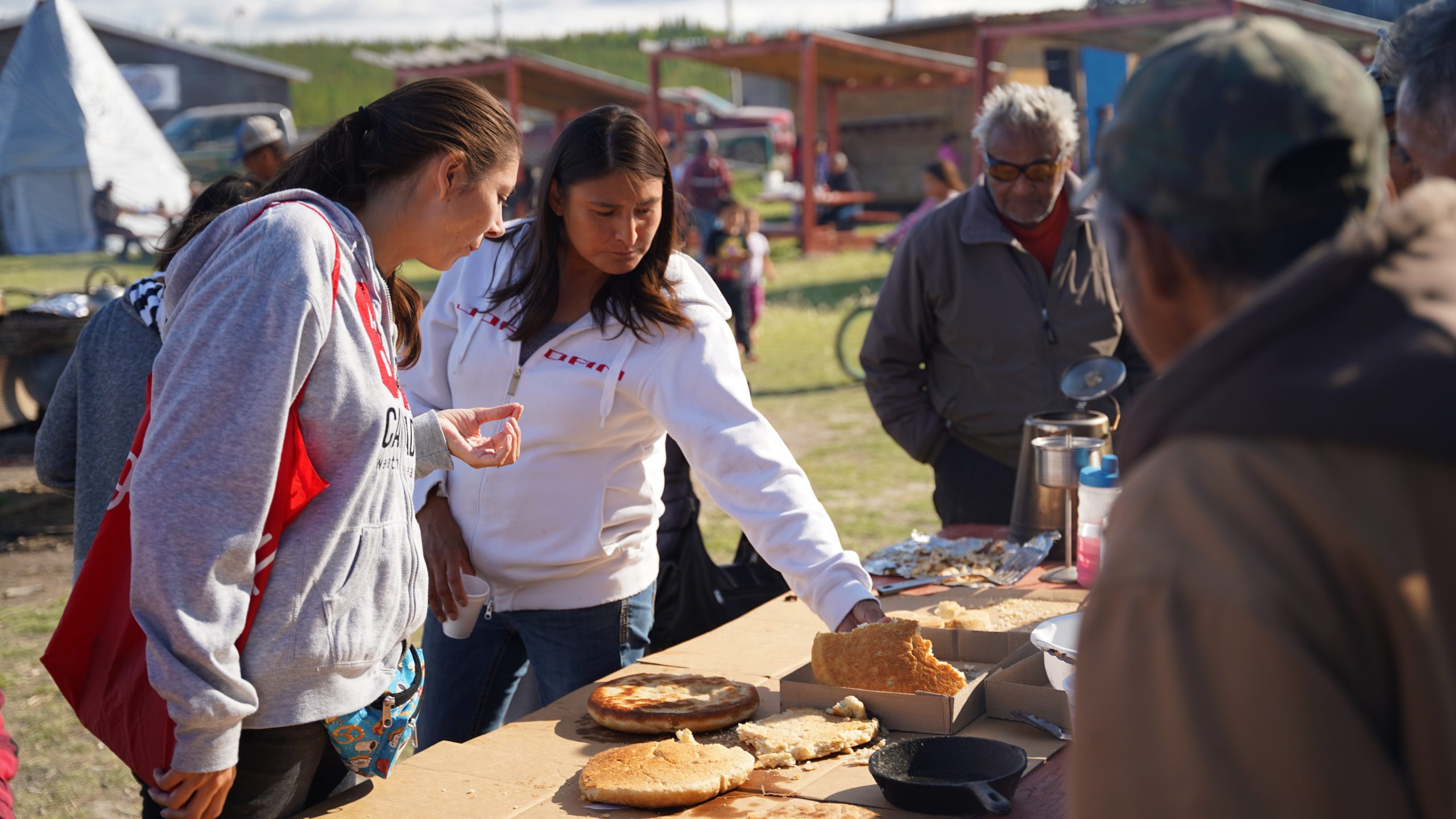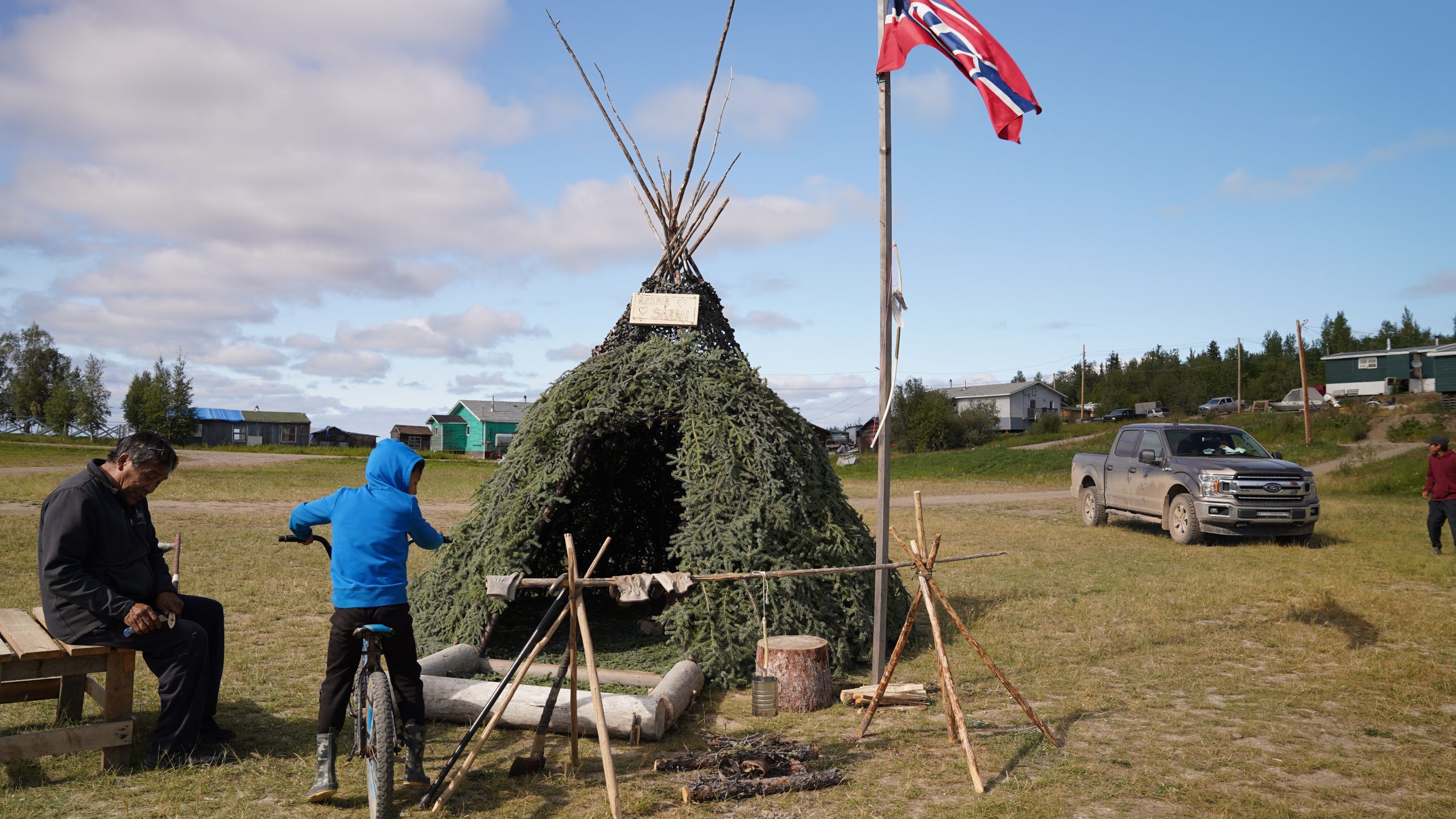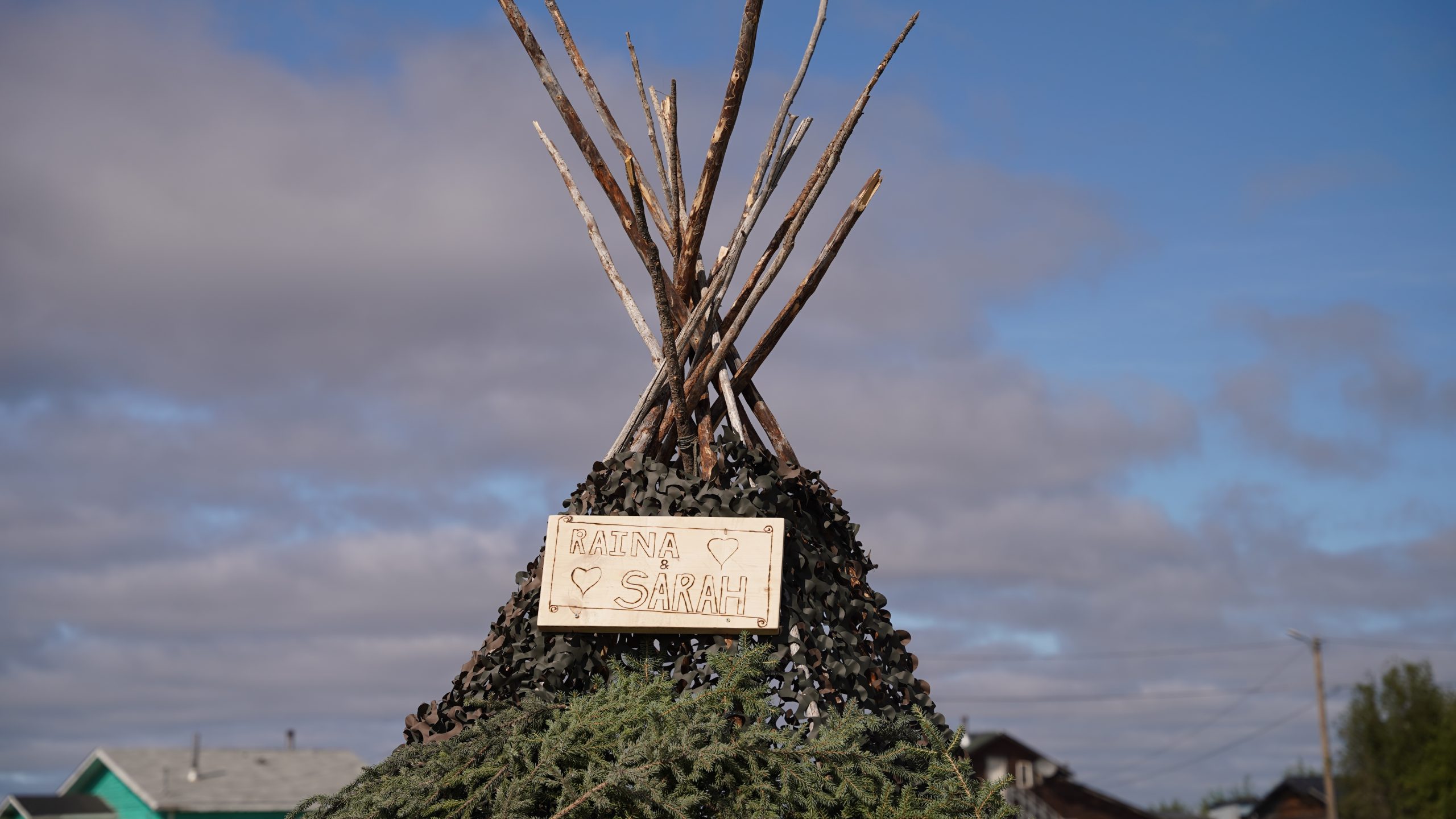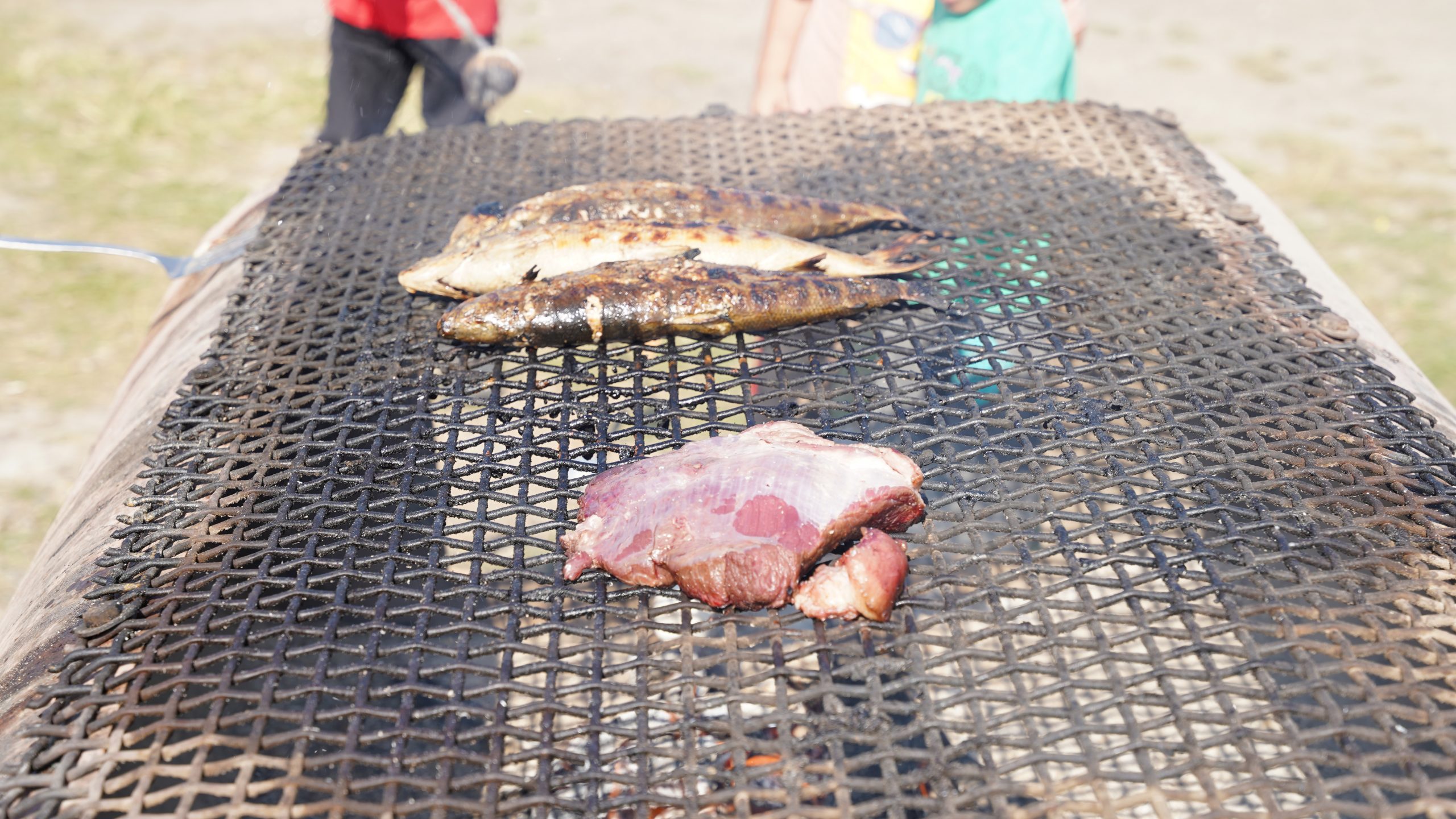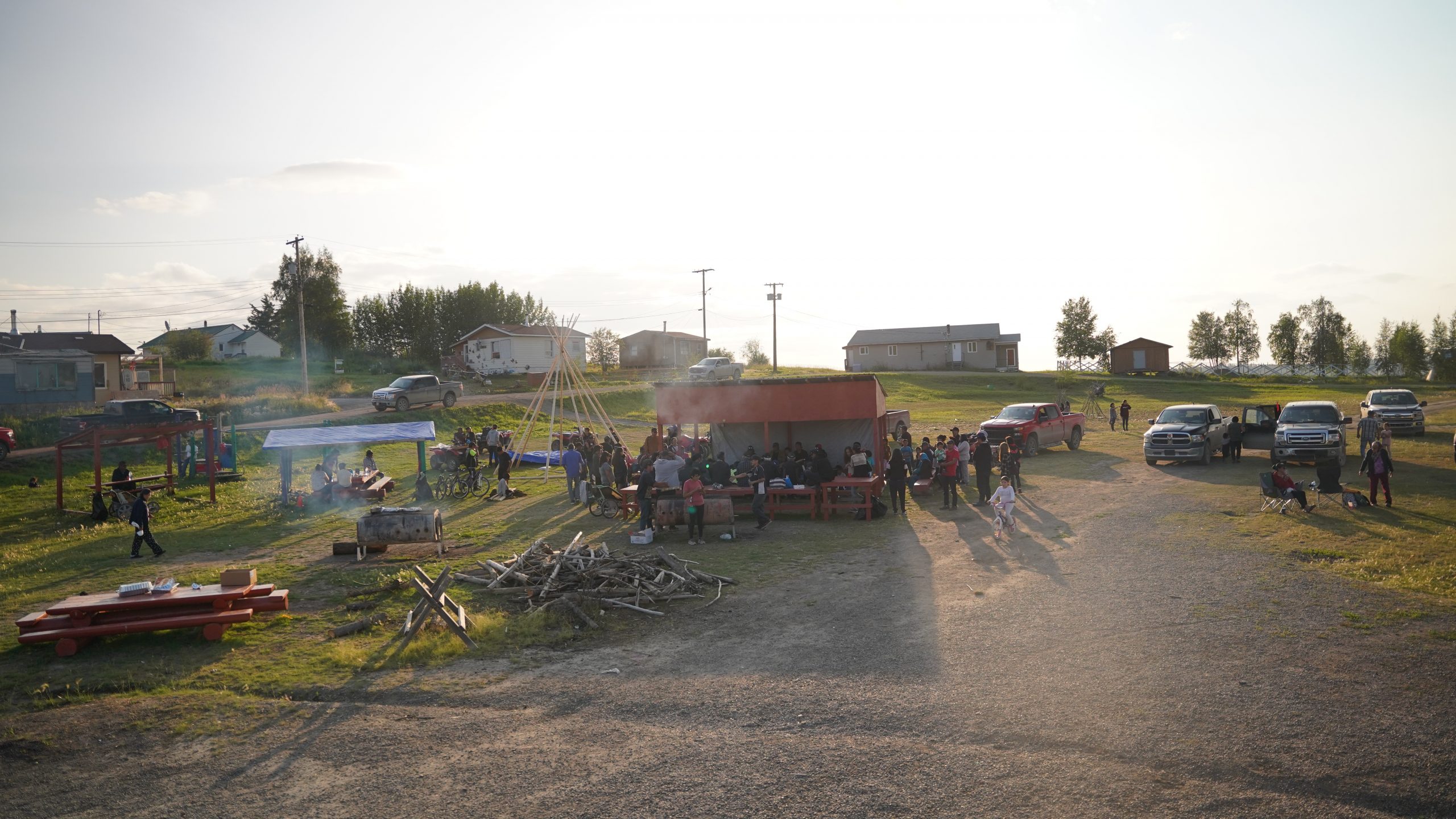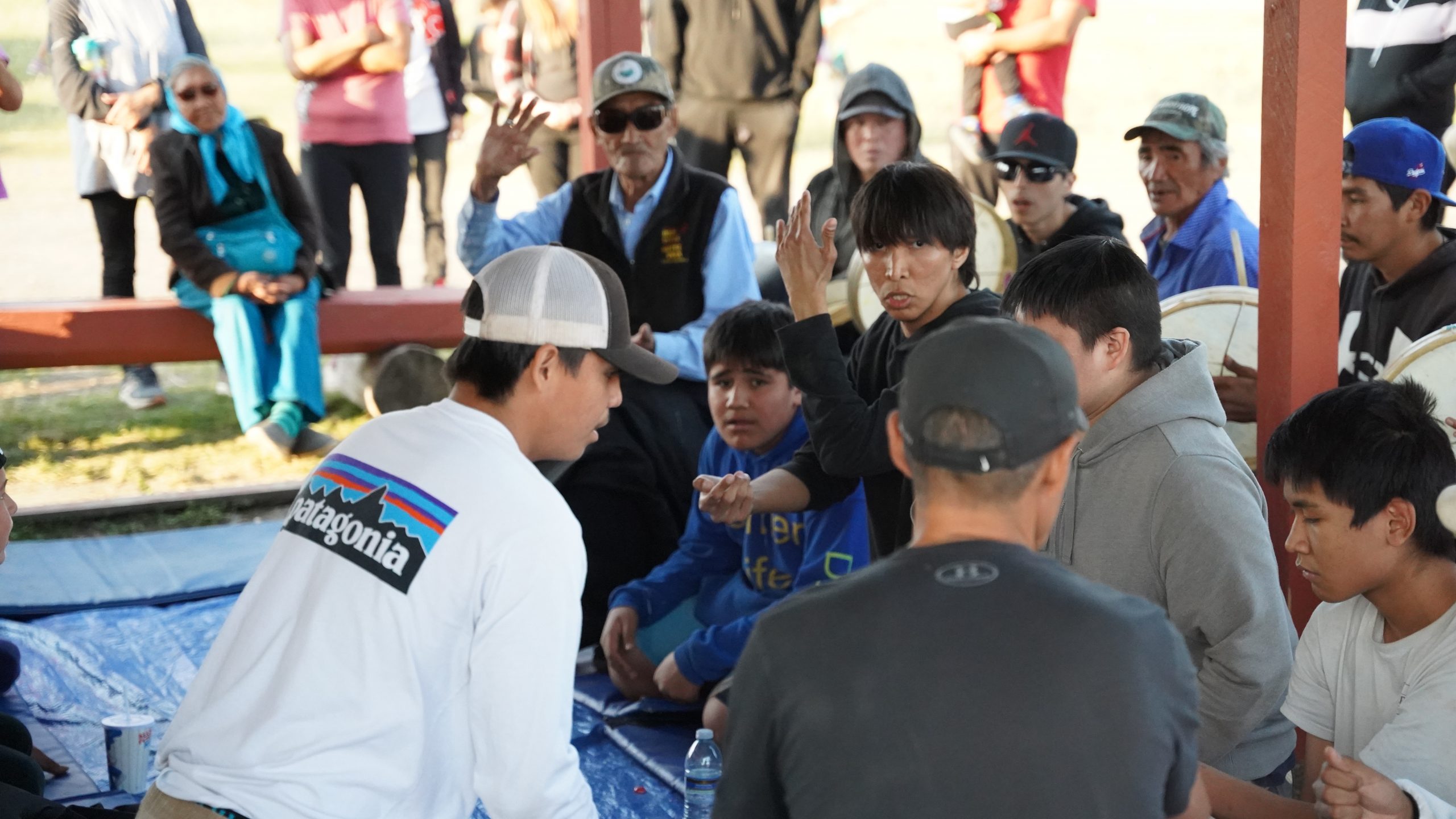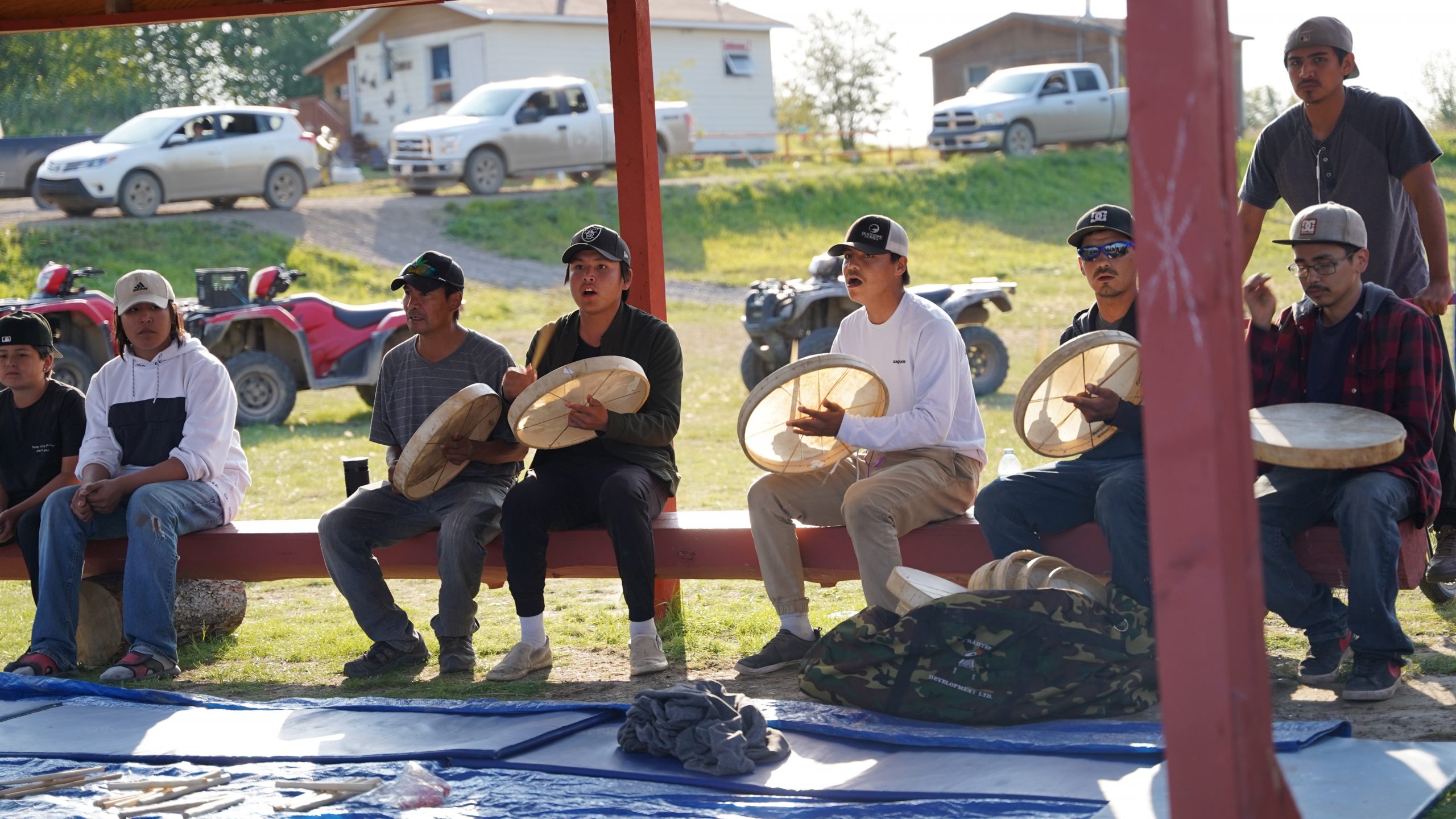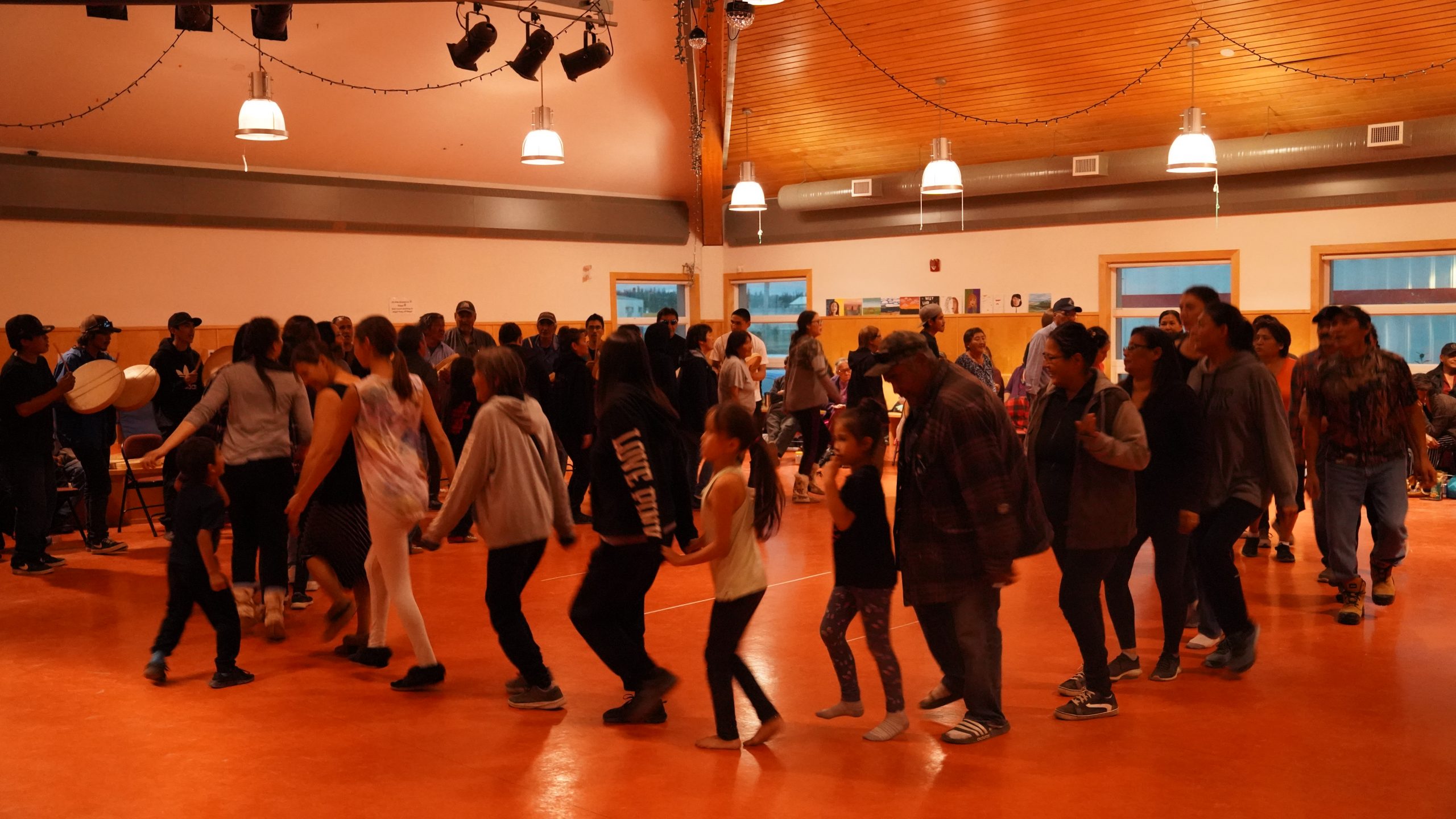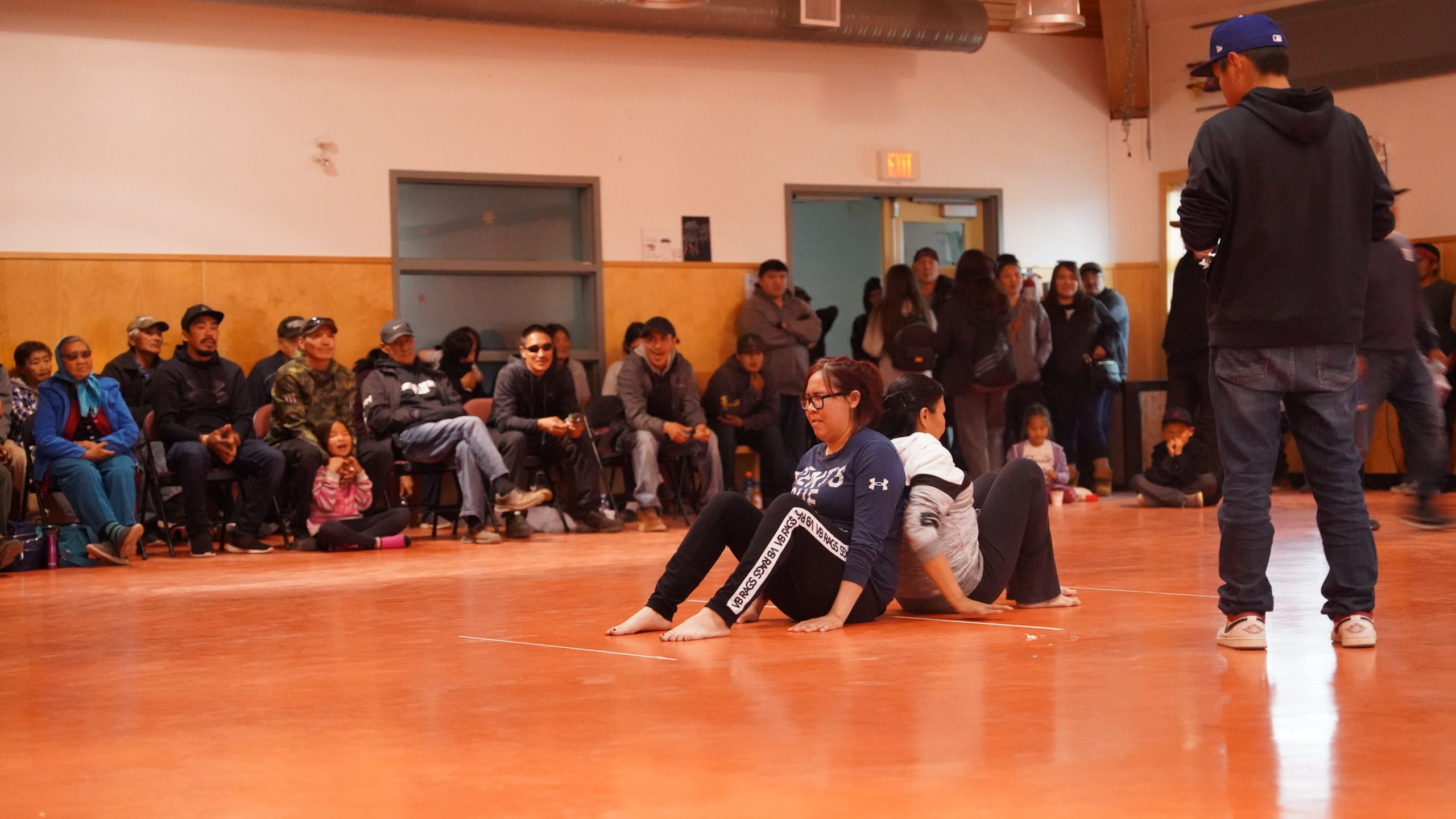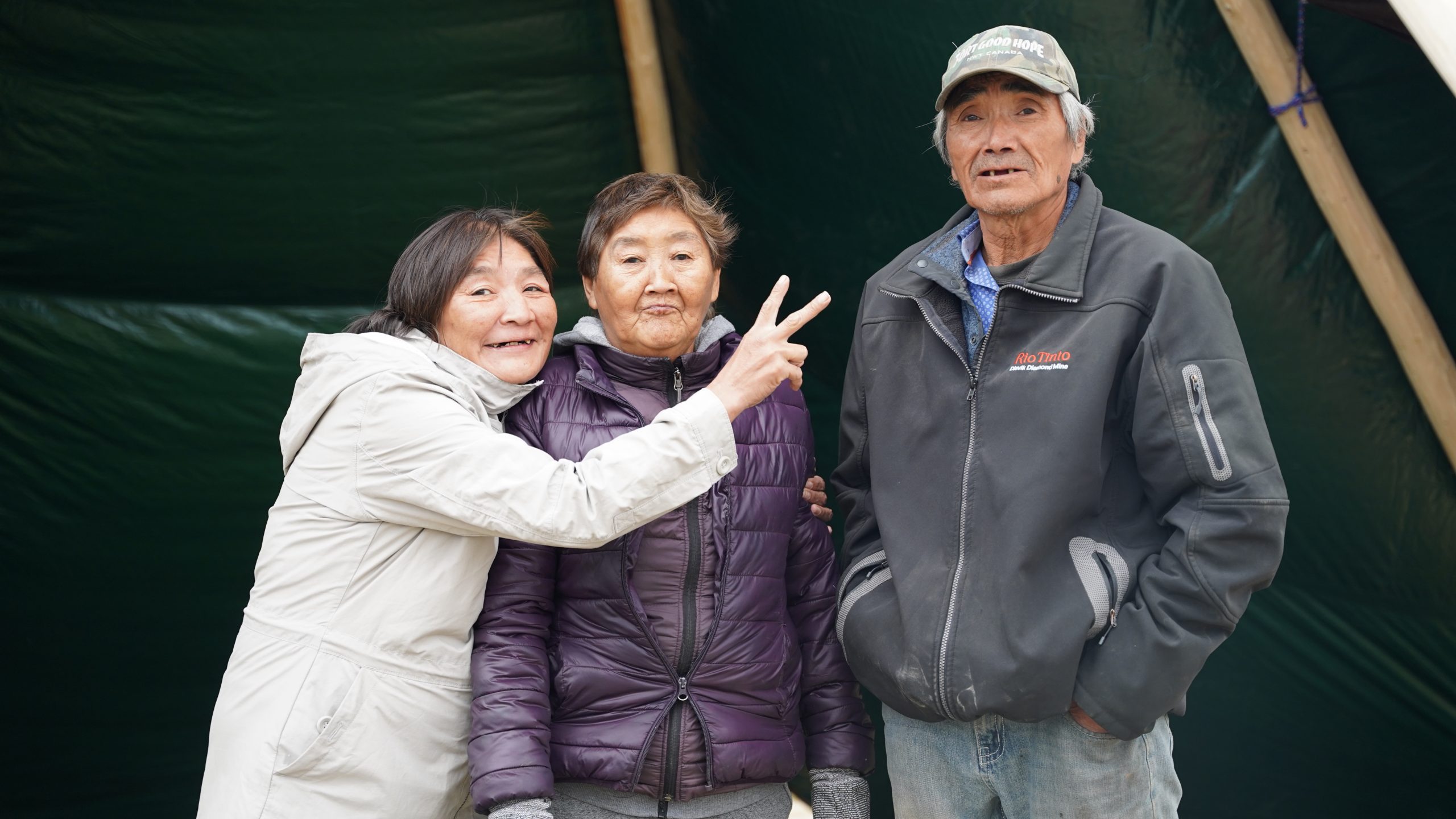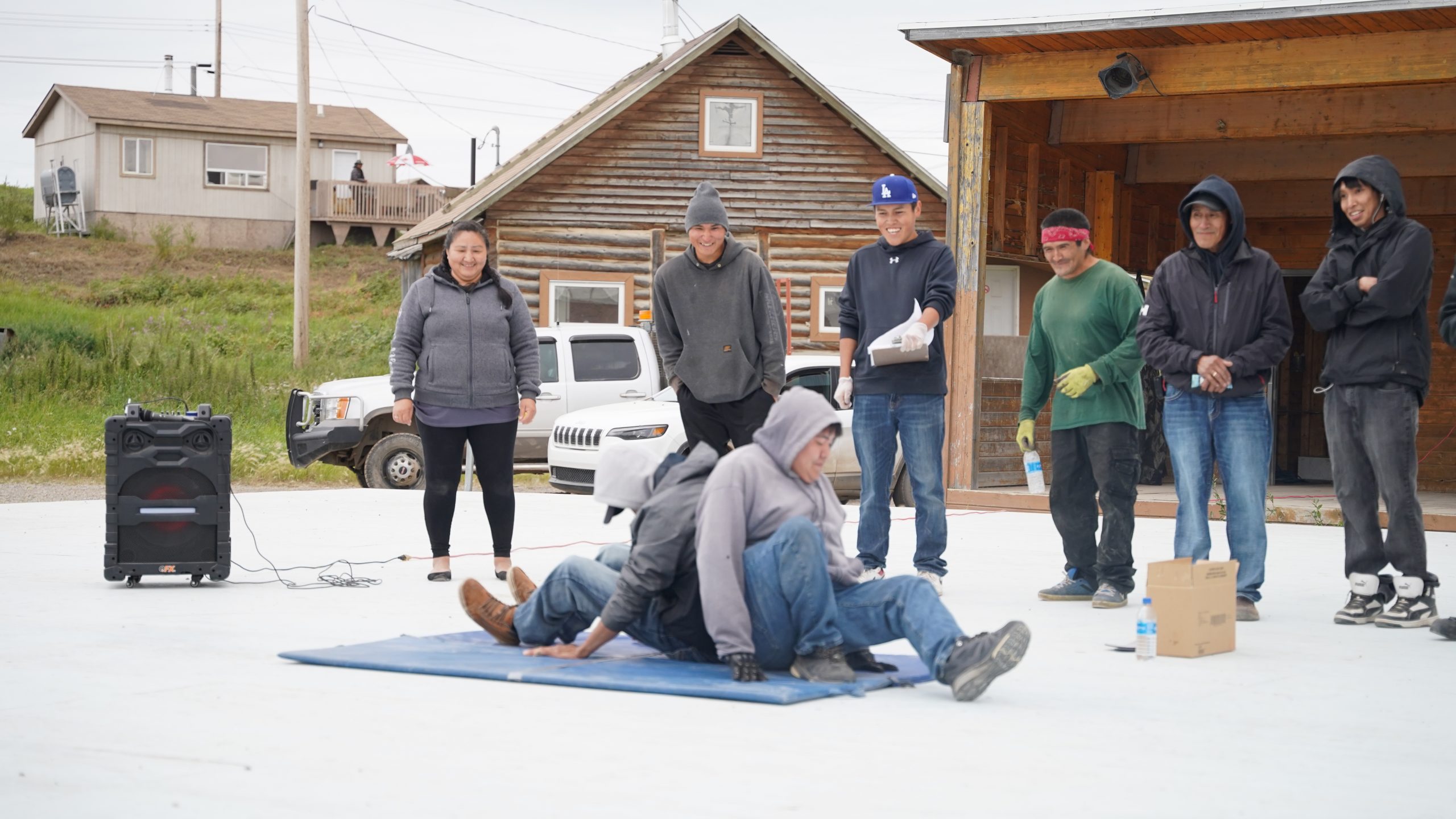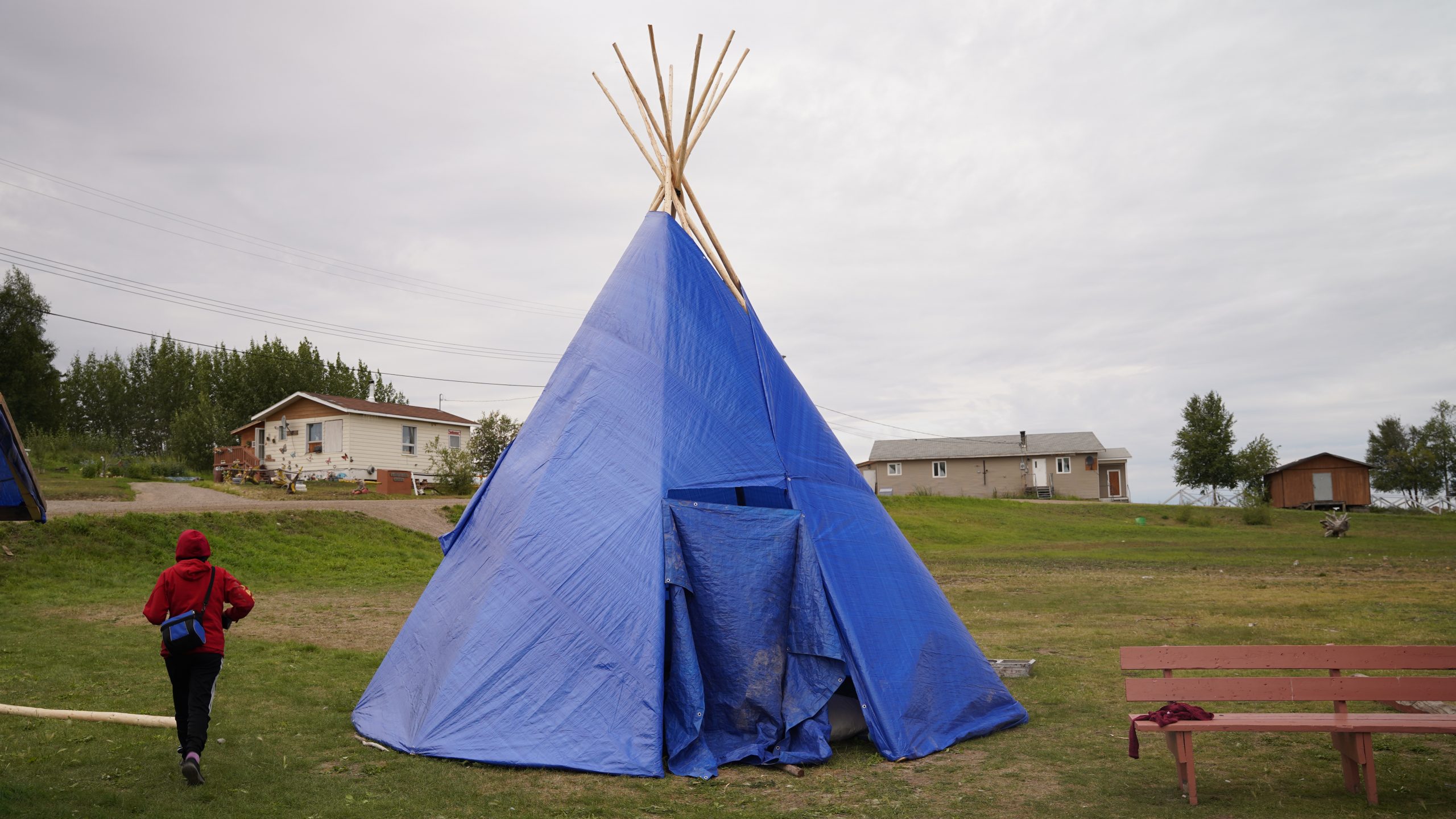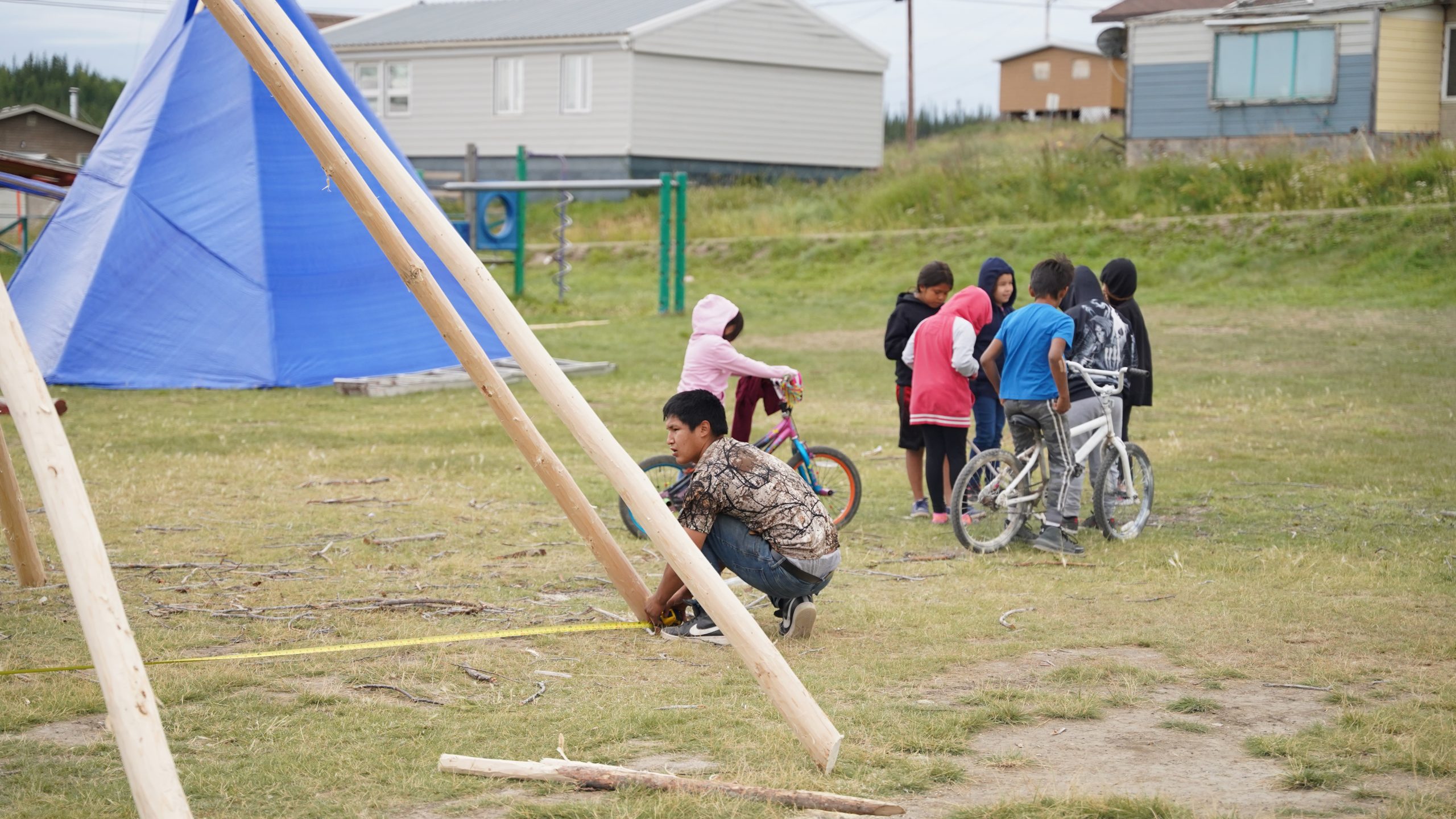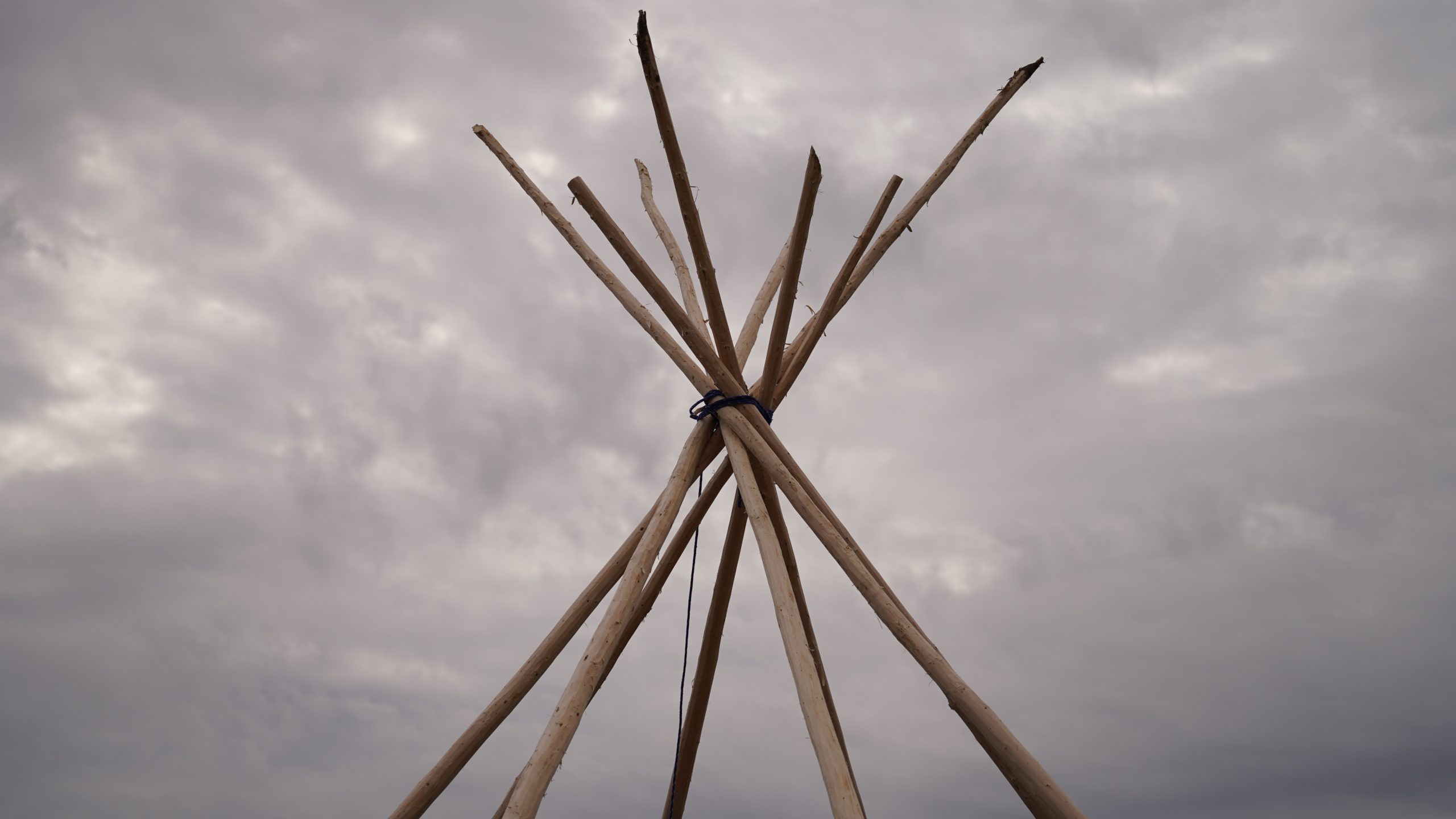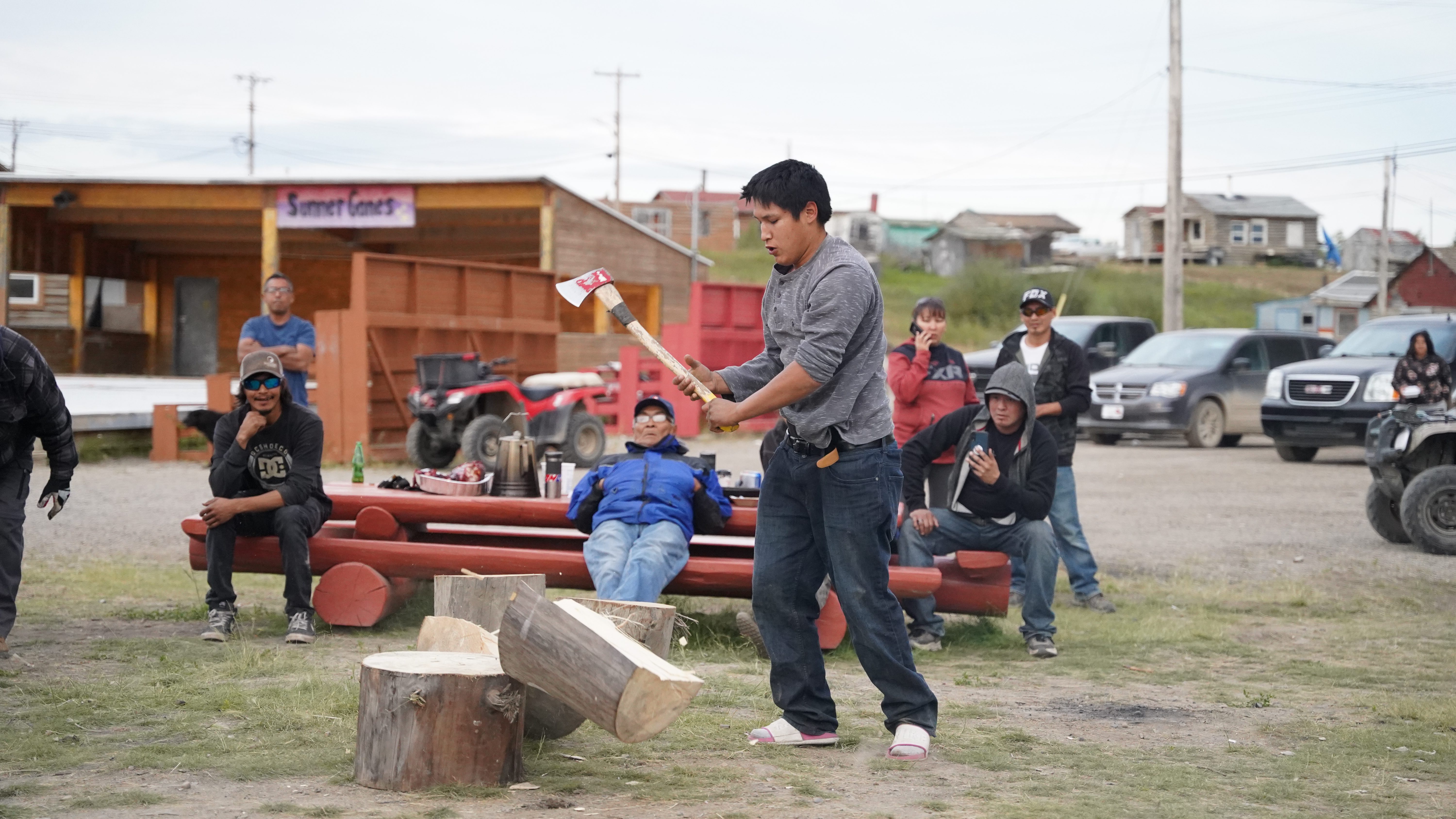Thomas Manuel Sr., an Elder from Fort Good Hope, says Elders must help youth learn traditional skills, something they had a chance to do during the Treaty 11 events.
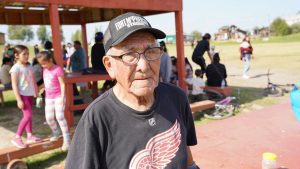
Thomas Manuel Sr. spoke with CKLB about Treaty 11 and the importance of Elders passing on traditional skills to the youth. (Photo by Luke Carroll/ CKLB.)
“Today we really have to work with the young people,” he said. “Depression is going to come and we need more of our young people to be out on the land and we’re the people who should teach them how to survive.”
The events took place from Aug. 5 to 9 and included a mini handgames tournament, canoe races, tipi making, bannock making and what might be the most popular event: traditional dress.
Traditional clothes
An emotional crowd delivered a roaring applause to the dozen men, women and children who showed off their traditional clothing Saturday night.
“I think back to when we were young, families used to be out in the bush and mothers used to plan weeks ahead of Christmas to try to dress their partner, their kids into the best traditional clothing they could put together,” participant Arthur Tobac announced to the crowd. “I have real fond memories of watching my mom doing her sewing.”
Laura Tobac came from Colville Lake to gather with family and enjoy the festivities.
“The traditional dressing, that was so awesome. Just so thankful and grateful to see all the young people still hang onto their traditional ways,” she said.
The attendees gave the backstory to the clothes they were wearing, explaining the history and giving credit to the artist. Several participants gave thanks to the late Judy Lafferty who was behind
numerous designs.
Gordon Mackenzo, originally from Délı̨nę, but now living in Fort Good Hope, said this was a favourite moment from the events.

The traditional dress event in Fort Good Hope. (Photo by Luke Carroll/ CKLB.)
“The beauty of it is them explaining where they got their outfits… The history of their slippers, to the history of their gloves, to who did the beadwork,” Mackenzo said. “The beauty of the traditional dress is just having a sense of where we come from as a people.”
The judges decided not to pick a single winner for the event, instead distributing the money amongst all the participants.
Tipi making competition
“I just love tipis, it’s sort of my safe haven, when I sit on spruce bough, it brings healing to me, it brings me inner peace,” Laura, one of the competitors told CKLB as she made tea inside her tipi on a rainy Monday morning.
She says she learned how to build tipis from her parents and grandparents, and enjoys building them out on the land.
Laura built the tipi with her grandson.
Joe Grandjambe also built a tipi for the event, but his was made the traditional style with branches covering it, as opposed to tarps.
He says he got the design from a picture of a tipi his grandmother from Délı̨nę had built.
“It’s not as good as the one she built, but it’ll do,” he said with a laugh.
Atop the tipi was a board that had the names Raina and Sarah, Grandjambe’s granddaughters.
“That’s who inspired us to do this for them,” he said.
Beside the tipi flew a Montreal Canadiens flag.
“Of course all my family are Montreal Canadiens fans so that has to be shown,” he said with a laugh.
Canoe races
The activities didn’t just take place on the land as paddlers took to the Deh Cho (Mackenzie River) for canoe races on a sunny Sunday afternoon.
The participants were ferried a couple kilometres down the river where they gathered on the shore to begin the race.
Michelle Taneton and Kyran Kakfwi were two competitors who experienced an early setback in the race when their canoe flipped.
“That was the first experience I had of tipping over, it was quite the challenge to get back in and start again,” Taneton said.
But the pair finished the race with smiles despite still dripping wet.
Shaun Tobac competed in back-to-back races, winning both.
He says he’s come a long way from when he first began paddling.
“Used to be always last, but now I’m way up there,” he said.
Treaty 11
The events were held to mark 100 years since Treaty 11 was signed between the Sahtu Dene and the federal government.

Sahtu Dene Council Grand Chief Wilbert Kochon. (Photo by Luke Carroll/ CKLB.)
Wilbert Kochon, Sahtu Dene Council Grand Chief, says it actually took three years for an agreement to be arranged in 1921.
Kochon shared a story from before the treaty was signed when government officials said they would take care of the people if they moved to a community. But one person remained out on the land. In the winter the individual visited the community, bringing food to share — he discovered no smoke coming from the homes, except for the government agent. He discovered the town was starving and the government agent had turned to cannibalism.
He says that story is a lesson to the people that they must be self-sufficient.
“You can’t let other people take care of you, a lot of people starved because they didn’t know how to live,” he said, “we should be able to take care of ourselves and govern ourselves.”
Laura says the treaty was among the first examples of the federal government betraying the trust of the Sahtu Dene.
She says she learned about Treaty 11 from her father.
“He said to believe in the government, that they were going to get an allowance of $5 and it would go up each year, but it just stayed at $5 and he was pretty upset about it, a lot of Elders were upset about it,” she said. “There was big confusion, they thought they were selling their lands and the government was going to take over their lives.”
“But they stuck to their traditional way of life and to this day it’s still happening.”

George Grandjambe spoke with CKLB about Treaty 11 and the future of the Sahtu. He also treated the attendees with his guitar playing. (Photo by Luke Carroll/ CKLB.)
George Grandjambe says he heard not everyone was in favour of the Treaty when it was signed.
“The stories I heard from a couple Elders, that when the treaty was originally signed, some of the Elders were against it, and the reason being is that they somehow knew that some of the power was going to be lost over land and traditional way of life on the land,” he said. “What they talked about back in 1921 is happening to date. People have no rights to the land or to trap or even harvest, harvesting wood has become a problem.”
The organizers
Many of the attendees said it had been a difficult year with the pandemic and that they were happy to be able to gather.
But the Treaty 11 events almost didn’t happen.
Freda Kelly, the lead organizer, said three weeks ago no one had signed up to volunteer.
“I actually put it out that I was going to cancel,” she said.
But at the last minute she got some support, one of the volunteers being Jody Snowshoe.
“When I saw online that Frieda was going to cancel it, I jumped in there,” she said.
Snowshoe was busy all weekend selling raffle tickets for prizes that included money, dried meat and her own homemade dry fish.
Brenda T’seleie-Pierrot was another organizer who helped with the various activities. She was asked to help because of her previous experience organizing the Ramparts Rendezvous, another traditional games event hosted in Fort Good Hope.
“I think it’s very important for us to continue to promote our cultural activities for our younger people. We always have a theme for when we have traditional games, sometimes it’s competitive, sometimes it’s about teaching a youth,” she said.
Music and dancing
Each evening ended with the attendees gathering in the band office for talent shows, live music and of course dancing — including a jigging contest.
Lawrence Manuel is a drummer from Fort Good Hope who has been traveling across the Sahtu for Treaty 11 events.
This includes Norman Wells, Fort McPherson and Midway Lake, which he says was a particularly special event.

Drummers perform during the Treaty 11 events in Fort Good Hope. (Photo by Luke Carroll/ CKLB.)
“There were quite a bit of people, I think more people than I have ever seen [there],” he said.
Lawrence said he was happy to be back home and to have the chance to drum for his community members.
Several powerful drum dances brought the attendees to their feet until 3 a.m.
And then there was Thomas Sr., who along with being a respected Elder, is recognized as one of the most talented fiddlers in the NWT.
Despite his age, he gave the crowd several beautiful performances that ended in a standing ovation from the youth and Elders in the audience.


